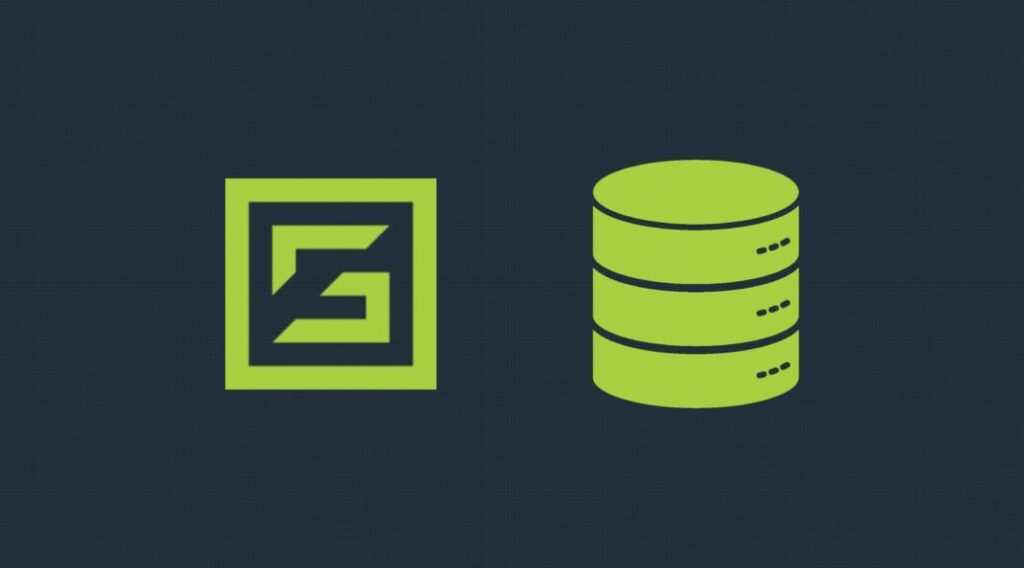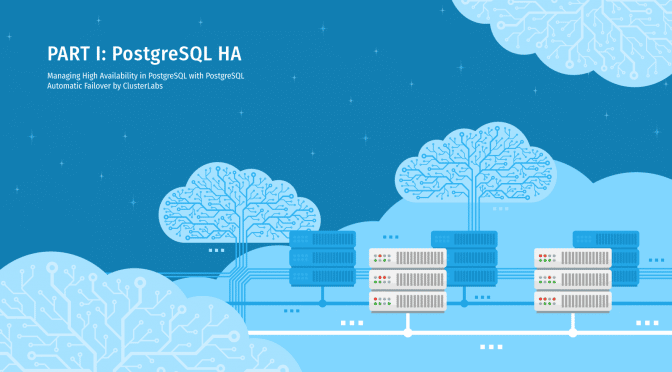The end of support and updates for a particular MongoDB version is called its ‘end of life’. This event, often called ‘MongoDB End of Life‘, signifies the termination of security enhancements and compliance assistance, affecting your system’s integrity. In the article, we will explore the implications of MongoDB’s end-of-life scenario and what it entails and guide you in preparing for this phase.
Key Takeaways
- MongoDB adheres to a 30-month End of Life (EOL) timeline for each version, necessitating proactive upgrades to avoid security and operational risks.
- Unsupported MongoDB versions pose significant challenges, including increased vulnerability to cyberattacks, compliance issues, and operational instability.
- ScaleGrid offers extended support and flexible upgrade timelines for older MongoDB versions, providing more control and enhanced customization than MongoDB Atlas.
One of our customers shared on G2:
“We are using it for MongoDB version 4. ScaleGrid allows us to stay on older versions until we are ready for a tech upgrade.“
Understanding MongoDB End of Life (EOL) Policies
Each MongoDB version follows a defined lifecycle, with each phase of significant importance. MongoDB Inc. outlines this progression for MongoDB Server and MongoDB Enterprise from initial release to retirement.
The release date of each MongoDB version plays a crucial role in determining the end-of-life timeline, impacting when support and updates will cease.
As a major version approaches its end-of-life date, users must understand the implications of ceased support and how these specific dates impact their operational systems.
Lifecycle Schedule
From the release dates of a new MongoDB version, there is a 30-month countdown to its end-of-life (EOL). Organizations must stay vigilant, keep abreast of release schedules, and prepare for transitions, including introducing new versions. A notification six months before EOL serves as a reminder that time and support are finite. The termination of MongoDB 4.4 in February 2024 exemplifies this progression.
MongoDB Server Lifecycle Schedule
| Release | Release Date | End of Life Date |
| MongoDB 2.6 | Apr-14 | Oct-18 |
| MongoDB 3.0 | Mar-15 | Feb-18 |
| MongoDB 3.2 | Dec-15 | Sep-18 |
| MongoDB 3.4 | Nov-16 | Jan-20 |
| MongoDB 3.6 | Nov-17 | Apr-21 |
| MongoDB 4.0 | Jun-18 | Apr-22 |
| MongoDB 4.2 | Aug-19 | Apr-23 |
| MongoDB 4.4 | Jul-20 | Feb-24 |
| MongoDB 5.0 | Jul-21 | Oct-24 |
| MongoDB 6.0 | Jul-22 | Jul-25 |
| MongoDB 7.0 | Aug-23 | Aug-26 |
MongoDB provides documentation and support to assist users through the upgrade process. Staying informed about upcoming EOL dates and planning migrations accordingly is crucial to avoid disruptions and maintain system integrity.
Impact on Users
A MongoDB’s end-of-life version is a critical juncture for users. Security vulnerabilities and regulatory compliance challenges increase once maintenance and updates cease following the EOL date.
This underscores the importance of timely software upgrades and strategic planning to keep pace with advancements in database technology.
Challenges of Using Unsupported MongoDB Versions
Operating with a MongoDB version that is no longer supported can lead to significant challenges and risks. Such versions do not receive the necessary security updates or patches, leaving them outdated and vulnerable to various security concerns and disruptions in functionality.
When official support for a MongoDB version ceases, it may result in system unreliability, difficulties meeting regulatory requirements, and inefficiencies within your operations.
Security Vulnerabilities
A database’s security is fundamental to maintaining an organization’s trust and integrity. Unsupported and outdated versions of MongoDB resemble ships with fragile hulls, susceptible to cyberattacks and data breaches. Attackers who exploit well-documented but unpatched vulnerabilities often target these old versions.
Neglecting to update systems with current security patches renders them defenseless against emerging exploits, which can lead to the horror of experiencing data breaches.
Compliance Issues
Maintaining compliance is crucial for safeguarding your organization’s reputation. Operating on outdated MongoDB versions can lead to non-compliance with strict data regulations such as GDPR and HIPAA, posing significant risks. Failure to meet these data protection requirements could result in substantial fines and legal consequences.
Operational Risks
Ensuring operational integrity is essential for the seamless functioning of any database system. Using unsupported versions of MongoDB can cause incompatibilities and system instability, leading to performance deterioration. These conditions can potentially trigger operational breakdowns that interrupt ongoing business operations.
MongoDB Atlas and Its Limitations
When exploring MongoDB Atlas in the extensive realm of database services, it’s important to recognize its restrictions. Although Atlas provides a managed cloud database service, limitations include a fast-paced release schedule and policies that can result in mandatory upgrades. Not all versions receive support, which might cause some users to feel left behind.
Rapid Release Cycle
MongoDB Atlas provides updates through its Rapid Release cycle, bringing the latest features to users. While these releases provide access to the newest capabilities, as with any software update, it is crucial for users to thoroughly test in order to maintain stability and compatibility in production environments. For greater control and reduced risk in production settings, users may opt for the major release schedule and carefully manage updates.
Unsupported Versions in Atlas
MongoDB Atlas has discontinued support for certain versions, such as MongoDB 4.4, prompting users to transition to newer and supported versions that continue receiving maintenance and updates. Users of MongoDB on Atlas must undergo a Mongodb upgrade to remain current with technology rather than becoming marooned with antiquated versions lacking support.
Forced Upgrades
Within MongoDB Atlas, upgrades are inevitable when a version approaches its EOL. Although these mandatory updates usually occur without hitches, they have the potential to bring up compatibility issues that necessitate Testing for a trouble-free experience.
ScaleGrid’s Flexible Version Support
ScaleGrid distinguishes itself with its flexible approach. It supports previous MongoDB versions and allows users to dictate their upgrade schedules.
Extended Support for Older Versions
ScaleGrid offers significant extended support for MongoDB versions reaching their end of life (EOL). By delivering ongoing maintenance and security updates, ScaleGrid ensures that older versions are robustly protected against myriad digital threats.
Control Over Upgrade Timing
Users at ScaleGrid retain the ability to dictate their schedule for upgrades, which allows them to navigate through the ScaleGrid console with precision. This independence facilitates detailed planning and guarantees that business operations continue smoothly without disruptions from upgrade processes.
Benefits of Using ScaleGrid
Opting for ScaleGrid provides multiple advantages, such as tailored management, improved performance, and economical operation of a fully managed Database-as-a-Service (DBaaS) specifically designed for MongoDB.
Customizable Management
ScaleGrid provides tailored management, assisting users with the complexities of database administration. It presents a wide array of powerful management features that allow users to fine-tune their MongoDB hosting according to their exact requirements, facilitating an efficient and strategically aligned navigational experience.
Enhanced Performance
ScaleGrid ensures elevated performance through an optimized infrastructure, dynamic scaling capabilities, and high-performance computing instances. This guarantees a rapid experience that can efficiently handle the pressures of intense data traffic and intricate queries.
Cost Efficiency
ScaleGrid provides a budget-friendly pathway by presenting MongoDB hosting solutions as wide-ranging as the open sea. These plans come packed with comprehensive features, including free data migrations, backups, and customer support. This eases the financial burden on organizations and enables them to navigate their database needs without fear of unforeseen expenses hidden in the depths below.
Version Support Comparison MongoDB Atlas vs ScaleGrid
The comparison highlights the distinct differences in version support. ScaleGrid offers extended support for older versions, providing more deployment flexibility than MongoDB Atlas, which follows a more traditional version support policy.
| Release | End of Life Date | Supported on Atlas | Supported on ScaleGrid |
| MongoDB 2.6 | Oct-18 | No | Yes |
| MongoDB 3.0 | Feb-18 | No | Yes |
| MongoDB 3.2 | Sep-18 | No | Yes |
| MongoDB 3.4 | Jan-20 | No | Yes |
| MongoDB 3.6 | Apr-21 | No | Yes |
| MongoDB 4.0 | Apr-22 | No | Yes |
| MongoDB 4.2 | Apr-23 | No | Yes |
| MongoDB 4.4 | Feb-24 | No | Yes |
| MongoDB 5.0 | Oct-24 | Yes | Yes |
| MongoDB 6.0 | Jul-25 | Yes | Yes |
| MongoDB 7.0 | Aug-26 | Yes | Soon |
In conclusion, understanding MongoDB’s EOL policies and comparing MongoDB Atlas with ScaleGrid highlights the importance of proactive database management. A MongoDB version’s EOL is critical, signaling the need for timely upgrades to maintain security, performance, and flexibility.
This post guides your database management strategies, emphasizing the advantages of services like ScaleGrid. By adopting proactive management and future-readiness, your databases can remain secure and efficient.
Frequently Asked Questions
What happens when a MongoDB version reaches its EOL?
Upon reaching its EOL, a MongoDB version ceases to obtain security patches or updates. This cessation can result in potential compliance problems and heightened security risks.
Can I continue to use MongoDB Atlas for unsupported versions?
Atlas will notify you six months before the version’s end of life. Unless you request and receive approval for an extension, your clusters will be automatically upgraded to the next MongoDB release once the version reaches its end of life. However, if you prefer to keep using your legacy MongoDB version without automatic upgrades, you can migrate to ScaleGrid, which offers extended support for older versions, allowing you to maintain your applications without mandatory updates.
How does ScaleGrid support older MongoDB versions?
ScaleGrid provides continued assistance for legacy MongoDB versions, delivering maintenance and security updates beyond their designated End of Life (EOL) to ensure sustained support.
What are the benefits of using ScaleGrid over MongoDB Atlas?
ScaleGrid provides enhanced management customization, superior performance, and cost-effectiveness while offering the flexibility to determine when upgrades occur, presenting benefits over MongoDB Atlas.
How can I ensure a smooth migration from MongoDB Atlas to ScaleGrid?
When transitioning from MongoDB Atlas to ScaleGrid, you must meticulously prepare your migration strategy, prioritize data integrity maintenance, reduce downtime as much as possible, and adhere strictly to suggested migration instruments and established procedures.








